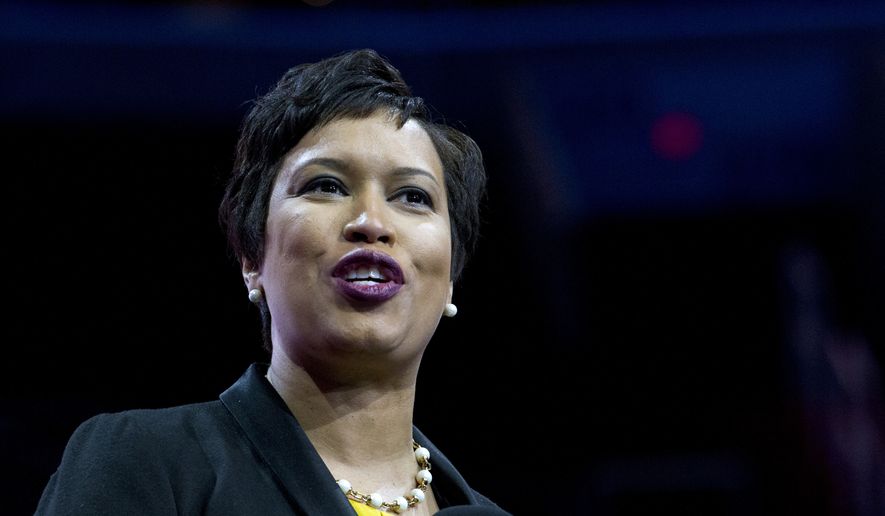Saying the availability and quality of health care are unevenly distributed across the city’s richer and poorer neighborhoods, D.C. Mayor Muriel Bowser announced Tuesday a new blueprint to address health inequity in the capital, based on a wide-ranging report detailing barriers to health care that are specific to resident demographics across the District’s eight wards.
The 168-page report, called the District’s Health System’s Plan, complements the Department of Health’s earlier proposed “D.C. Healthy People 2020 Initiative,” which outlined 150 objectives to address health issues in the city, both preventive and chronic.
Miss Bowser said the data collected in the report provides a road map of where best to focus the efforts for city health officials to fulfill the goals of Healthy People 2020.
“Healthy People DC continues to set out main goals for us to follow and I think what is contained here in this report is a road map to get there specifically,” the Democratic mayor told a press conference on Tuesday.
Department of Health Director Dr. LaQuandra Nesbitt said the data compiled in the report will better inform the department when considering proposals by health care partners, where their services are most needed, and what will make the most impact throughout the city.
The shifts will be “more of an alignment of a health strategy that encompasses how we invest in our infrastructure, how we pull together some of the elements that are related to policy,” Dr. Nesbitt said. “But this [data] can also be used as it relates to making decisions through the certificate process where people are looking to make new capital investments or add lines of service as it relates to health care.”
The report was originally released in May and covers all manners of health inequity from access to care, strength of health systems and preventive health measures — and how each are affected by demographics of age, race and economic status.
The report tracks stark levels of health inequality between neighborhoods that are either predominantly white or black — with the biggest gaps found among access to care, transportation, quality food and groceries, and other services in Wards 5, 7 and 8.
These areas suffer from a high rate of crime and homicide, high rates of unemployment, low rates of insurance coverage and high rates of chronic diseases, such as asthma and diabetes.
According to the health report, a higher percentage of black residents smoke (28 percent) compared to Hispanic (14 percent) and white (10 percent) residents. In Ward 8 alone, over 40 percent of adults are current smokers, “more than double the citywide average (19 percent), while only 9 percent of residents in Ward 2 smoked.”
Shortly after Ms. Bowser’s announcement, Ward 7 Councilmember Vincent Gray of Ward 7 — a former mayor who many think could challenge Ms. Bowser in the Democratic primary next year — announced he had just proposed legislation to increase the sales tax on cigarettes by $2 a pack in an effort to reduce the numbers of smokers in the capital.
“The proposed bill is a tool to fight back and keep pace that big tobacco spends on targeting these communities, especially in the east of our city in Wards 7 and 8,” Mr. Gray said Tuesday.
He was joined by representatives from the American Lung Association, the American Cancer Society Action Network, and a local D.C. physician in announcing increased efforts by the D.C. Department of Health to increase cessation outreach and education to residents.
“I would be happy to be put out of business if it meant I didn’t have to treat another person with heart disease caused by smoking,” said Dr. Jennifer Ellis, a cardiothoracic surgeon at MedStar Washington Hospital Center and also a member of the American Heart Association.
City officials said the Health Systems Plan is part of a series of public health initiatives from the Bowser administration, including efforts against opioid addiction and initiatives to aid Medicaid beneficiaries with chronic conditions.
• Laura Kelly can be reached at lkelly@washingtontimes.com.




Please read our comment policy before commenting.